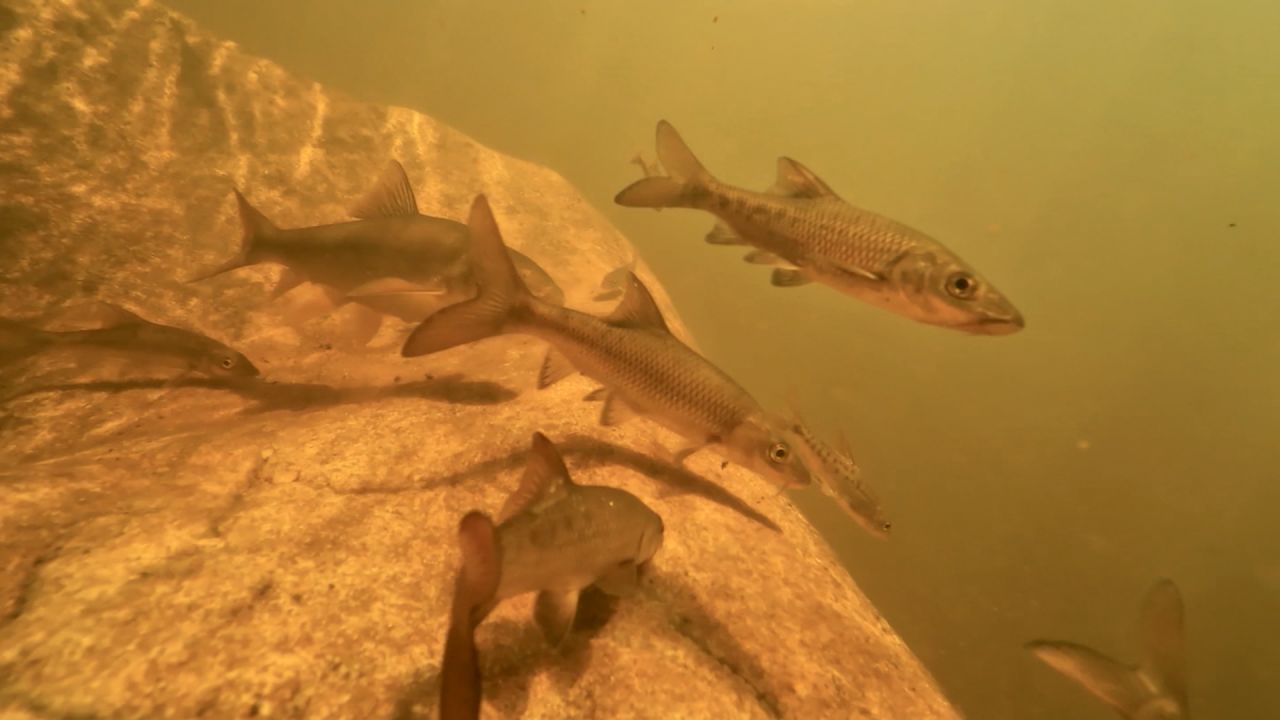Science
Conservationists Unite to Rescue South Africa’s Clanwilliam Sandfish

The Clanwilliam sandfish, a freshwater species endemic to South Africa’s Western Cape, faces a critical threat to its survival. Once abundant, these fish were known for their remarkable annual migrations, which would agitate the waters into visible waves. Over the past few decades, however, their population has plummeted, prompting urgent conservation efforts to restore this unique species to its natural habitat.
The decline of the Clanwilliam sandfish is primarily attributed to habitat loss, pollution, and the introduction of invasive species. According to the South African National Biodiversity Institute, the sandfish has been listed as “Critically Endangered” on the IUCN Red List since 2003. This designation underscores the urgent need for concerted conservation actions.
Community and Research Collaboration
In response to this decline, a coalition of conservationists, researchers, and local organizations has mobilized to initiate recovery programs. CapeNature, a provincial agency responsible for biodiversity conservation in South Africa, has taken a leading role in these efforts. Their initiatives include habitat restoration, public awareness campaigns, and breeding programs aimed at increasing the sandfish population.
The University of Cape Town has also partnered in these efforts, providing crucial research support. Scientists at the university are studying the sandfish’s habitat requirements and reproductive behaviors to better inform conservation practices. Their research aims to develop effective strategies that will enhance the fish’s chances of survival in a changing environment.
Community involvement plays a pivotal role in the conservation of the Clanwilliam sandfish. Local residents have been educated about the species’ ecological significance and the measures they can take to protect their habitat. Engaging the community fosters a sense of ownership and responsibility towards the preservation of their natural resources.
Success Stories and Future Prospects
Recent conservation efforts show promising results. In 2023, successful breeding programs led to the release of over 500 juvenile sandfish into their natural waterways. These initiatives have not only bolstered the sandfish population but have also revitalized local ecosystems.
While the road to recovery is still long, the dedication of conservationists and the support of the community provide hope. Ongoing monitoring and adaptive management strategies will be essential to ensure that these fish continue to thrive in their native habitats.
Experts emphasize that the survival of the Clanwilliam sandfish is not just about saving a single species. It reflects the health of the entire freshwater ecosystem in which they reside. The collaboration among conservationists, researchers, and local communities exemplifies a unified approach to biodiversity conservation in South Africa.
As these efforts continue, the Clanwilliam sandfish serves as a reminder of the delicate balance between human activity and environmental preservation. With sustained commitment and cooperation, there is a tangible path forward to restore this iconic species and protect the rich biodiversity of the Western Cape.
-

 Lifestyle3 months ago
Lifestyle3 months agoLibraries Challenge Rising E-Book Costs Amid Growing Demand
-

 Sports3 months ago
Sports3 months agoTyreek Hill Responds to Tua Tagovailoa’s Comments on Team Dynamics
-

 Sports3 months ago
Sports3 months agoLiverpool Secures Agreement to Sign Young Striker Will Wright
-

 Lifestyle3 months ago
Lifestyle3 months agoSave Your Split Tomatoes: Expert Tips for Gardeners
-

 Lifestyle3 months ago
Lifestyle3 months agoPrincess Beatrice’s Daughter Athena Joins Siblings at London Parade
-

 World3 months ago
World3 months agoWinter Storms Lash New South Wales with Snow, Flood Risks
-

 Science3 months ago
Science3 months agoTrump Administration Moves to Repeal Key Climate Regulation
-

 Science2 months ago
Science2 months agoSan Francisco Hosts Unique Contest to Identify “Performative Males”
-

 Business3 months ago
Business3 months agoSoFi Technologies Shares Slip 2% Following Insider Stock Sale
-

 Science3 months ago
Science3 months agoNew Tool Reveals Link Between Horse Coat Condition and Parasites
-

 Sports3 months ago
Sports3 months agoElon Musk Sculpture Travels From Utah to Yosemite National Park
-

 Science3 months ago
Science3 months agoNew Study Confirms Humans Transported Stonehenge Bluestones









